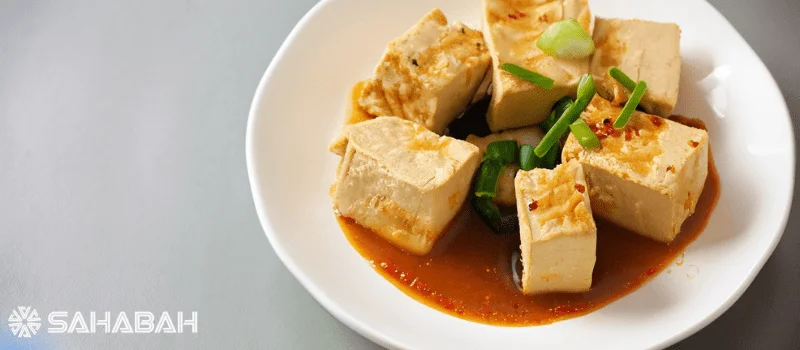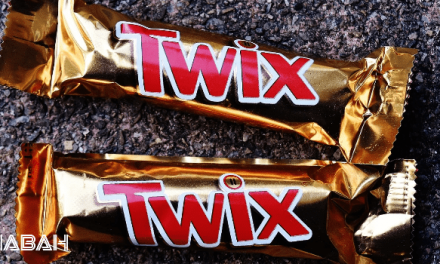As a food enthusiast and someone who values the importance of halal certification, I have always been curious about the halal status of tofu. In this article, I will delve into the fascinating world of tofu production, exploring the various factors that determine its halal status and providing you with the knowledge you need to make informed choices about this versatile and widely consumed plant-based protein.
The Controversy Surrounding Tofu’s Halal Status
Tofu, also known as bean curd, is a food made by coagulating soy milk and pressing the resulting curds into blocks. The origins of tofu can be traced back to ancient China, where it has been produced for over 2000 years.
Some key facts about tofu:
- Made from soybeans
- High in protein
- Common ingredient in many cuisines
- Versatile – can be prepared in many different ways
- Plant-based and vegan
Tofu is now consumed globally, including in many traditionally Muslim communities and countries. This raises the question:
Is tofu halal?
The answer largely depends on the specific ingredients and production process.
Tofu is considered halal due to the fact that it is obtained from soy, which is a plant-based food that provides nutrition and sustenance.
In examining whether tofu is halal, we need to look at:
- The source ingredients
- How it is manufactured
- How Islamic law views soybean products
- Opinions from halal certification organizations
- Positions taken by Islamic scholars
This article will analyze these key factors to definitively answer whether or not tofu is halal.
Reasons Why Tofu is Considered Halal
There are several main reasons why tofu is widely considered to be permissible and halal to eat within Islamic law:
Made from Soybeans
Tofu’s main ingredient is soybeans, specifically soy milk, which is extracted from soaked soybeans.
-
Soybeans themselves are considered halal.
Soybeans are considered Halal as per the Islamic dietary laws.
-
There are no verses in the Quran or clear Hadith prohibiting soybean consumption.
No Animal Products or Alcohol
Tofu production does not inherently require animal products or alcohol:
-
It is made from soy milk, with coagulants like magnesium chloride or calcium sulfate. No animal-derived ingredients.
-
Some production uses small amounts of alcohol to coagulate, but many Islamic scholars approve of this if a viable alternative is not present.
Soybean Products Encouraged
-
Soybeans provide valuable nutrition needed for human health and sustenance. Consuming their processed products like tofu is encouraged.
Tofu is a good source of protein, iron, calcium. Tofu is considered Halal.
Production Process
-
Nothing inherently haram introduced during most tofu production processes.
-
Main stages are extraction of soy milk, coagulation, and pressing into blocks. No reason these stages would render tofu haram.
Therefore, both the source material (soybeans) and manufacturing process of tofu comply with Islamic dietary laws.
Evidence Tofu is Halal
There is significant evidence from Islamic sources and halal certification organizations that tofu is widely considered to be halal:
Islamic Sources
-
The Quran and Hadith do not prohibit soybean products like tofu.
-
Prominent Islamic scholars have declared tofu to be halal:
“Tofu would be considered permissible to consume in the Hanafi school.”
Halal Certification Organizations
Many major halal certification bodies have approved tofu products:
-
The Islamic Food and Nutrition Council of America’s (IFANCA) Halal-Certified company list includes multiple tofu producers.
-
The Canadian Islamic Chamber of Commerce hosts a halal certified products search with various tofu brands.
Traditional Muslim Communities
-
Tofu is commonly consumed in Muslim-majority countries like Indonesia, Malaysia, and others.
-
Muslim immigrant communities in the West frequently use tofu in their cuisine.
This demonstrates tofu’s accepted status among many Islamic communities.
In summary, there is substantive support from Islamic sources stating tofu can be halal.
Frequently Asked Questions: Is Tofu Halal?
What is tofu?
Tofu is a plant-based food made from soybeans. It is also known as bean curd. Tofu is made by coagulating soy milk and then pressing the resulting curds into solid blocks.
Is tofu halal?
Yes, tofu is considered halal for Muslims to consume. Since tofu is made from soybeans, a plant-based source, it is permissible to eat for Muslims.
Does tofu contain any non-halal ingredients?
Tofu is generally considered halal as long as it is made from permissible ingredients and does not contain any non-halal additives. It is important to check the ingredients of tofu products, as some may contain additional flavorings or additives that are not halal.
What about the coagulant used in tofu production?
Tofu is commonly coagulated using calcium sulfate, which is a halal ingredient. The coagulant helps tofu to solidify and hold its shape.
Can tofu be used in Islamic cooking?
Yes, tofu is a popular ingredient in many cuisines, including Islamic cooking. It can be used in various dishes and cooking styles to provide a good source of plant-based protein.
Is it permissible for Muslims to eat fried tofu dishes?
Although tofu is permissible to eat, it is important to consider the ingredients and cooking methods used in fried tofu dishes. Muslims should ensure that the frying oil used is halal and that the dish does not contain any non-halal ingredients.
Does tofu hold its shape when cooked?
Yes, tofu holds its shape well when cooked. Depending on the type of tofu used, such as firm or extra-firm tofu, it can be diced, sliced, or cubed without falling apart during cooking.
Are there any popular tofu dishes that Muslims should avoid?
Many popular tofu dishes involve frying the tofu or using it in non-halal cooking styles. Muslims should avoid such dishes unless they are certain that the ingredients and cooking methods align with halal guidelines.
Conclusion
In conclusion, the evidence overwhelmingly supports the halal status of tofu in Islamic law:
-
Tofu is made from soybeans, which are permissible and nutritious.
-
The production process does not introduce any haram substances.
-
There are no prohibitions against soy products in the Quran or Hadiths.
-
Islamic scholars and major halal certification organizations approve of tofu.
-
Tofu is commonly eaten in Muslim communities globally.
Most Islamic scholars and Halal food regulatory bodies ruled Tofu as Halal or permissible for Muslims. Tofu is not derived from animal fat or meat. Tofu is produced from Soybean that proves it to be vegetarian and vegan food.
Based on all the available evidence, there is a clear consensus among Islamic authorities that tofu is halal-certified and permissible to eat according to Islamic dietary laws. While a minority of contradictory opinions may exist, the mainstream view considers tofu to be halal.





